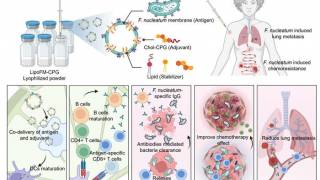Monotherapy Treatment of Advanced HPV16+ Cancers Shows Promising Anti-Tumor Activity

An immunotherapeutics company announced positive interim Phase 1 data on HB-201, a replicating monotherapy for the treatment of HPV16+ cancers.
The interim data support proof of concept for HB-201 monotherapy as new immunotherapy for a difficult-to-treat patient population with multiple prior treatment failures.
The results are from the initial dose-escalation cohorts of an ongoing Phase 1/2 clinical trial evaluating HB-201 as therapy for patients with advanced HPV16+ metastatic cancers.
Joern Aldag, CEO of HOOKIPA Pharma Inc. stated in a release press release, “The early response with our single-vector HB-201 therapy highlights the potential of our replicating technology, especially as we explore alternating two-vector therapy with HB-201/HB-202, and a future combination with a PD-1 inhibitor, both of which we hope will deliver even greater responses.”
As of December 4, 2020, 22 patients have been enrolled in the first two cohorts, of which 15 were eligible for evaluation. Among the 15 evaluable patients, 11 patients had relapsed/refractory metastatic squamous cell head and neck cancer (HNSCC), all of whom had progressed on prior therapy with a PD1 inhibitor.
As per RECIST1.1, in patients with third-line or later HNSCC, HB-201 demonstrated an unconfirmed response rate of 18% (one unconfirmed complete responder and one unconfirmed partial responder) and a 73 percent disease control rate (six stable disease patients, in addition to the two unconfirmed responses referenced above).
Median progression-free survival (mPFS) is currently measured at 72 days and is ongoing.
Although not demonstrated in a head-to-head trial, these HB-201 results, in more heavily treated patients who progressed on a PD1 inhibitor, compare favorably to the benchmark data of a 13 percent overall response rate and a 60-day mPFS1 for nivolumab in second-line PD1 inhibitor naïve HNSCC patients, based on data published from the third-party registrational study.
Encouraging efficacy signals were also seen in the more heterogeneous group of all 15 evaluable patients with HPV16+ cancers treated in this trial, comprised of the 11 HNSCC patients summarized above and four other patients with HPV16+ cervical, anal, or vaginal tumors.
In these 15 patients, HB-201 demonstrated an unconfirmed response rate of 13%, a disease control rate of 67%, and a median PFS that is also ongoing and currently measured at 72 days.
Of the 22 patients enrolled on the trial as of December 4th, preliminary safety data show that HB-201 has been well tolerated. Treatment-related adverse events were reported by 41 percent of participants. Almost all reported events were Grade 1 and 2 and included fatigue, fever, decreased appetite, constipation, nausea, and itching.
Only one serious adverse event deemed related to HB-201, Grade 3 fatigue leading to hospitalization, has been reported to date. The rate of adverse events was consistent regardless of the administration route.
“There remains a considerable unmet need in the treatment of HPV16+ cancers, particularly those in head and neck, and these preliminary data on HB-201 as a monotherapy are encouraging,” added Alan L. Ho, MD, Ph.D., a medical oncologist at Memorial Sloan Kettering Cancer Center and an investigator on the trial.
HOOKIPA’s HB-201 and HB-202 are engineered using a replicating arenaviral vector platform. They are designed to use different arenavirus backbones (LCMV for HB- 201 and PICV for HB-202) while expressing the same antigen, an E7/E6 fusion protein derived from HPV16.
In pre-clinical studies, alternating administration of HB-202 and HB-201 resulted in a 10-fold increase in immune response and better disease control than either compound alone.
Human Papillomavirus, or HPV, is estimated to cause about 5 percent of the worldwide burden of cancers. This includes approximately 99 percent of cases in cervical, up to 60 percent of head and neck, 70 percent of vaginal, and 88 percent of anal cancers.
The majority of these cancers are caused by the HPV serotype 16. Most infections with HPV are cleared from the body with no lasting consequences.
However, in some cases, HPV DNA becomes integrated into chromosomal DNA.
When host cells take up this DNA, they express the HPV E6 and E7 proteins. This uptake can potentially lead to cancer since the expression of these proteins leads to alterations in cell cycle control, which in turn predisposes these cells to become cancerous.
HOOKIPA Pharma Inc. is a clinical-stage biopharmaceutical company developing a new class of immunotherapeutics based on its proprietary arenavirus platform that reprograms the body’s immune system.
Vax-Before-Cancer publishes research-based oncology news.
Our Trust Standards: Medical Advisory Committee
























